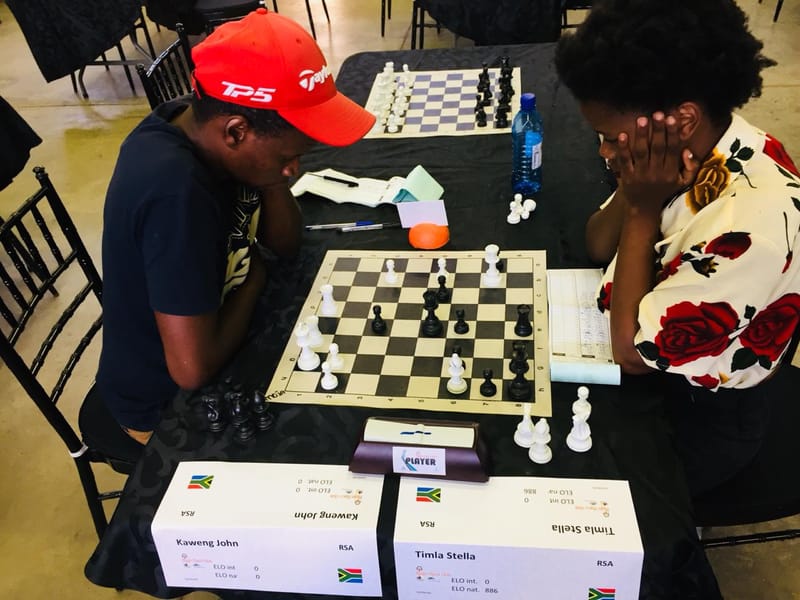Chess is fun

A chess position is not always easy to evaluate, meaning it’s not always easy to figure out who’s winning. Sure, there are rules of thumb: such-and-such piece is worth so-and-so many points, and whoever has the most points is winning. That kind of very straightforward thinking won’t get you very far, because there are enough exceptions to swallow the rule.
So, unlike poker (where an ace always beats a king), sometimes in chess a knight is better than a bishop, and sometimes a bishop is better than a knight. Developing a sense of how to accurately evaluate a position is one of the toughest challenges there is.
As a former world champion, Mikhail Tal, once said: “you must take your opponent into a deep dark forest where 2+2=5, and the path leading out is only wide enough for one.” In other words, Tal had a propensity for finding positions where “the rules” didn’t apply… where 2+2=5. Tal had a knack for operating in that deep dark forrest, and was often the only one coming out alive.
There are other extremes as well. I don’t remember the position unfortunately, but another world-champion caliber player (I think Botvinnik), found himself in a complicated position during an important game against a tough opponent. At what appeared to be the critical position, Botvinnik moved instantly and traded a knight for a bishop (or maybe a bishop for a knight, I can’t remember). He went on to win. Afterwards, he was asked how he calculated all the variations so quickly and confidently when he made his instant move. He replied, “I didn’t calculate anything. I simply knew that if I removed my opponent’s dark squared bishop [or whatever it was], the complications would unfold favorably.” It’s hard to appreciate how deep an insight this is without seeing the position, but it was a pretty deep insight.
Are there any metaphors or universal truths that the game touches on?
More than I can say here. Here are just a few maxims from chess that have applicability to life in general. I haven’t bothered to look these up to get the words right, so I might be off a word here and there:
- “When you see a good move, look for a better one.”
- “The threat is stronger than the execution.”
- “One has never won a game by resigning.”
- "Chess is a struggle against one's own errors."
- “A chess game has three phases: the opening, where you hope you’re going to win; the middlegame, where you’re sure you’re winning, and the endgame, where you know you’ve lost.”
- This is one of my favorite quotes. It’s a little glib, but it really speaks to the folly that we all fall victim to from time to time: that of un-earned confidence.
Are there any gray areas that are interesting?
At least one in every game, at least in high-level chess. As a person gets better at chess, they can calculate essentially indefinitely. In fact, you don’t really even need to get to the super-grandmaster level to do that… I’d say a typical “master” can. Without getting into what “master” means, suffice it to say that almost anyone can become a master with sufficient time and hard work… one doesn’t need an abundance of natural talent.
The point is, a high level game is rarely won because you calculate farther than your opponent. Instead, you come to some “critical” position where you make a decision. You imbalance the game in some way: you willingly accept some disadvantage in order to inflict some disadvantage on your opponent. Sometimes the imbalance is very concrete: I give up a piece, in exchange for weakening the protection around your king. Sometimes it’s very abstract: I accept a slightly awkward pawn structure, in exchange for greater piece harmony. Whatever “harmony” means!
But this moment is the gray area: is the trade-off worth it? Am I taking you to a deep dark forrest where 2+2=5, and I win despite my disadvantage? Or does 2+2=4, and I lose?
So what is interesting about playing chess?
Besides all the other stuff, for me chess isn’t interesting because it’s a metaphor for life, or because it’s intellectually rigorous or complex, or any of that. For me, chess is an artistic medium, like music or painting. There are positions in chess of great beauty, and it’s a type of beauty that I can’t really explain in terms of any other medium. There’s just no analogue.
Don’t get me wrong, I’m not trying to elevate chess over other games. You mention poker. I’ll also throw in what I believe to be an intellectually-under-appreciated game: pool. I don’t think it makes sense to try to rank these games in any objective terms. But each game is sufficiently deep to warrant a lifetime of study



